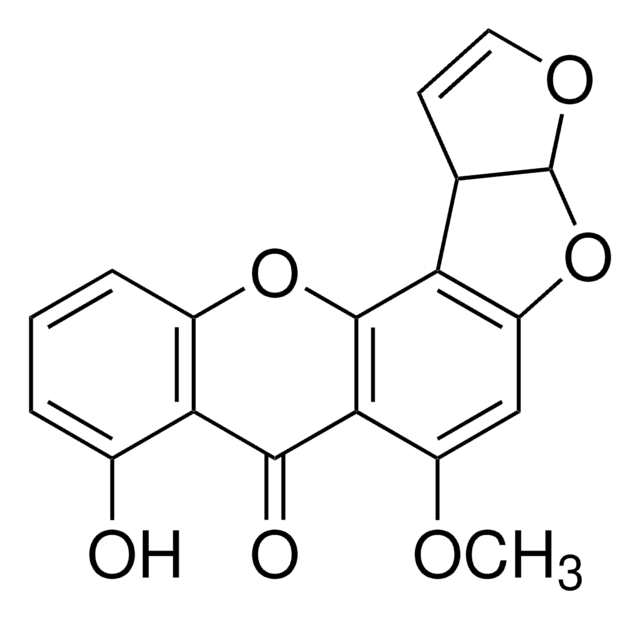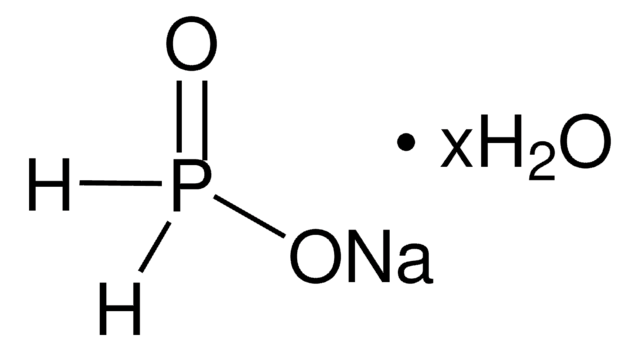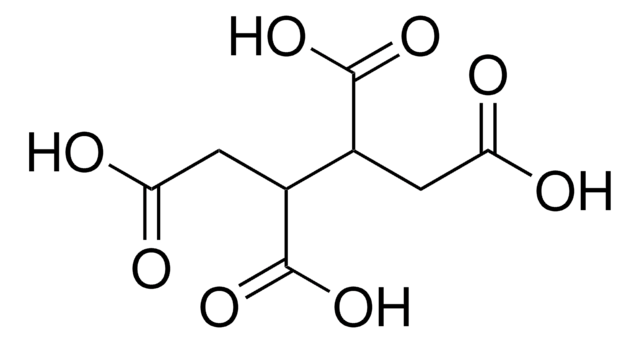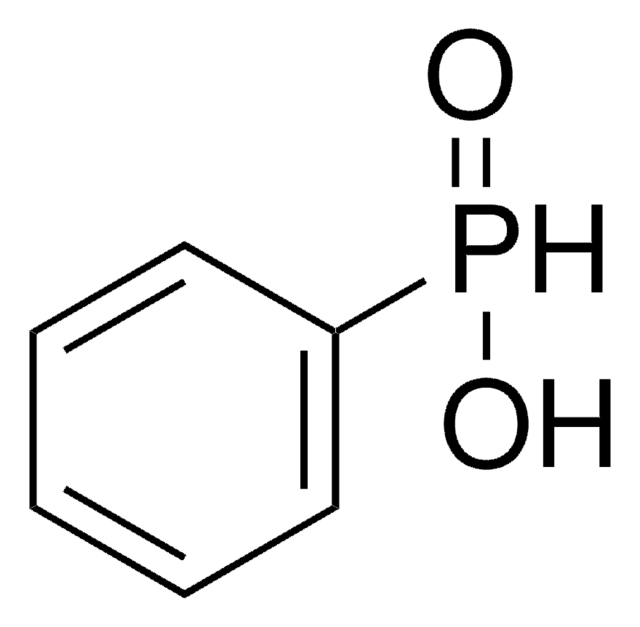S5012
Sodium hypophosphite monohydrate
≥99%
Sinónimos:
Sodium hypophosphite 1-hydrate, Sodiumphosphinite
Iniciar sesiónpara Ver la Fijación de precios por contrato y de la organización
About This Item
Fórmula lineal:
NaH2PO2 · H2O
Número de CAS:
Peso molecular:
105.99
Número CE:
Número MDL:
Código UNSPSC:
12352302
ID de la sustancia en PubChem:
NACRES:
NA.22
Productos recomendados
Análisis
≥99%
formulario
powder, crystals or chunks
solubilidad
water: 100 mg/mL, clear, colorless
cadena SMILES
O.[Na+].[O-][PH2]=O
InChI
1S/Na.H3O2P.H2O/c;1-3-2;/h;3H2,(H,1,2);1H2/q+1;;/p-1
Clave InChI
PLZNPHDJGFDNRM-UHFFFAOYSA-M
¿Está buscando productos similares? Visita Guía de comparación de productos
Categorías relacionadas
Aplicación
Sodium hypophosphite monohydrate can be used as a:
- Reducing agent in the synthesis of nickel nanoparticles (NiNP) from nickel acetate tetrahydrate under microwave irradiation.
- Hydrogen donor in the enantioselective transfer hydrogenation of aliphatic and aromatic ketones to corresponding alcohols in presence of ruthenium catalyst.
- Catalyst in esterification of spent grain to improve heavy metal ions adsorption capacity using N,N-dimethylformamide (DMF) as a solvent.
Código de clase de almacenamiento
11 - Combustible Solids
Clase de riesgo para el agua (WGK)
WGK 2
Punto de inflamabilidad (°F)
Not applicable
Punto de inflamabilidad (°C)
Not applicable
Equipo de protección personal
Eyeshields, Gloves, type N95 (US)
Elija entre una de las versiones más recientes:
¿Ya tiene este producto?
Encuentre la documentación para los productos que ha comprado recientemente en la Biblioteca de documentos.
Los clientes también vieron
Biphasic Glycerol/2-MeTHF, Ruthenium-Catalysed Enantioselective Transfer Hydrogenation of Ketones Using Sodium Hypophosphite as Hydrogen Donor.
Guyon C, et al.
European Journal of Organic Chemistry, 2013(24), 5439-5444 (2013)
Fast esterification of spent grain for enhanced heavy metal ions adsorption.
Li Q, et al.
Bioresource Technology, 101(10), 3796-3799 (2010)
Microwave assisted greener synthesis of nickel nanoparticles using sodium hypophosphite.
Eluri R and Paul B
Materials Letters, 76, 36-39 (2012)
C Sánchez-Pedreño et al.
The Analyst, 115(9), 1257-1260 (1990-09-01)
A kinetic method for the determination of Te based on its inhibitory effect on the PdII-catalysed reaction between pyronine G and H2PO2- is described. The influence of experimental variables on the rate of the process and the potential interfering effect
W S Price et al.
Biophysical journal, 61(3), 621-630 (1992-03-01)
A new 31P NMR method is used to probe the cytoplasmic viscosity of human erythrocytes. The method is based on observing two-spin order relaxation of the 31P atom of the hypophosphite ion. This method is superior to our previous method
Nuestro equipo de científicos tiene experiencia en todas las áreas de investigación: Ciencias de la vida, Ciencia de los materiales, Síntesis química, Cromatografía, Analítica y muchas otras.
Póngase en contacto con el Servicio técnico












